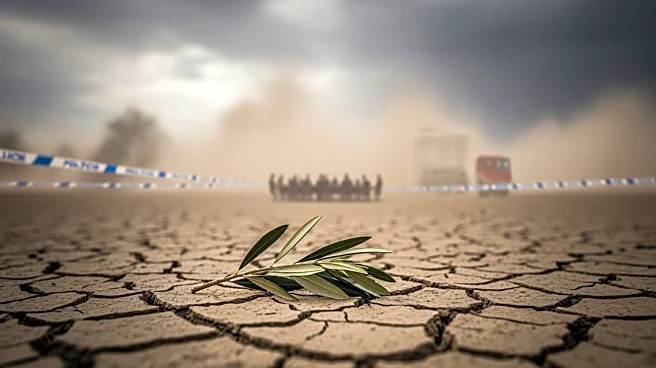What's Happening?
The UN Human Rights Council has approved an independent investigation into mass killings in the Sudanese city of el-Fasher, aiming to identify those responsible for the atrocities. The investigation follows
reports of over 150,000 deaths and 12 million displaced since the civil war began. The UN's mandate does not address the involvement of other countries allegedly supplying weapons to Sudanese factions, including accusations against the UAE and Iran. The RSF paramilitary group, accused of targeting non-Arab groups, captured el-Fasher after an 18-month siege.
Why It's Important?
The investigation represents a significant step in holding perpetrators accountable for human rights violations in Sudan. It highlights the international community's struggle to address complex geopolitical dynamics, as countries like the UAE and Iran face scrutiny for their alleged roles in the conflict. The situation underscores the challenges of enforcing international law and protecting human rights amid ongoing violence and political interests.
What's Next?
The UN investigation may lead to findings shared with the International Criminal Court, potentially resulting in legal action against those responsible for the mass killings. The international community may face pressure to increase humanitarian aid and diplomatic efforts to resolve the conflict. The investigation could influence future policies on arms embargoes and international cooperation in conflict zones.
Beyond the Headlines
The conflict in Sudan raises broader questions about the effectiveness of international interventions and the ethical responsibilities of nations involved in arms trade. The situation highlights the need for comprehensive strategies to address root causes of violence and promote sustainable peace. As digital evidence becomes crucial in documenting atrocities, the role of technology in human rights advocacy may expand.










